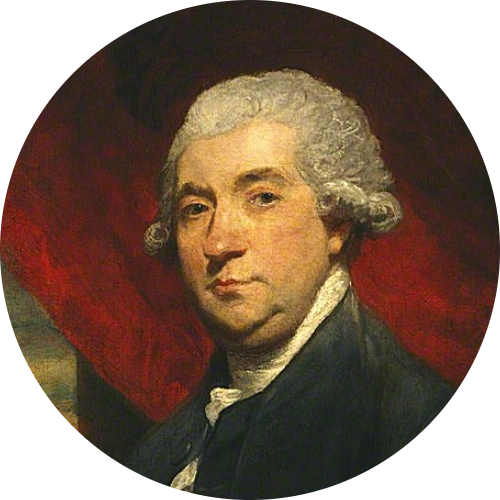Ferguson was the son of Rev. Adam Ferguson and his wife Mary Gordon. In 1767 Ferguson married Katharine Burnett (d. 1795) but had no children.
He received his education at Perth Grammar School, before going on to the universities of Edinburgh and St. Andrews, from which he took his M.A. in 1742. In 1745 he became regimental chaplain to the 43rd Highland Regiment of Foot1, and he continued to be attached to the regiment until 1754 when he decided to leave the clergy to pursue more literary interests.
In 1757 he briefly succeeded David Hume as Keeper of the Advocates' Library, but soon after relinquished his office, when he became a tutor in the family of the Earl of Bute. In 1759 Ferguson was appointed Professor of Natural Philosophy at the University of Edinburgh before, in 1764, becoming Professor of Pneumatics and Moral Philosophy instead.
Ferguson's main claim to fame is arguably his Essay on the History of Civil Society (1767), which received critical acclaim and which was widely read even three decades after its initial publication.
He resigned his position as Professor of Moral Philosophy in 1785, but he continued with his literary endeavours, and in 1792 appeared, in two volumes, his Principles of Moral and Political Science.
In 1793, at the respectable old age of 70, Ferguson visited Germany and Italy, residing for a short time at Rome, and was elected an honorary member of the Academy of Sciences in Berlin.
Boswell took Dr Johnson to visit Edinburgh College (University) on August 16, 1773, in the company of its principal, William Robertson, and others. Here they met Adam Ferguson, "whose Essay on the History of Civil Society gives him a respectable place in the ranks of literature."2 That same evening, Ferguson supped with Boswell and Johnson at Boswell's Edinburgh home, together with Dr William Cullen, his son Robert Cullen, and Boswell's close associate Andrew Crosbie.
